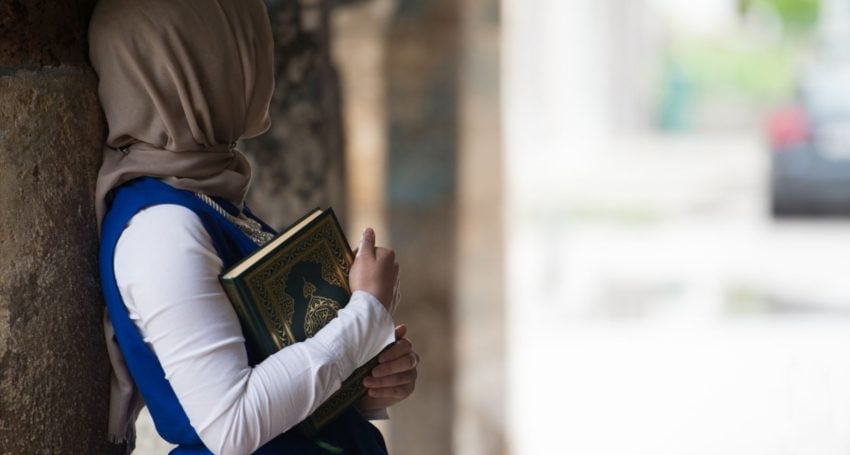Who are the Uyghur people and what is happening to them in China?
Features
Justice Unit Coordinator Jen Basham tells us about the persecution and surveillance of the Uyghur in China and the response of faith leaders around the world, who call people of faith everywhere to join them “in prayer, solidarity and action to end these mass atrocities”

Recently, Rowan Williams the former Archbishop of Canterbury, along with five serving Church of England Bishops and dozens of other faith leaders, signed a resolute public statement highlighting the potential genocide of the Uyghurs and other Muslims in China, calling it: “one of the most egregious human tragedies since the Holocaust.”
The full statement can be read online. It is succinct and shocking. The story of the Uyghurs is not well known, but cries out for our attention.
Gul is an Australian citizen in her mid-20s. In 2018 her parents, who are Australian permanent residents, visited China to see family members. Interviewed by The Guardian, she was alone, living in fear and desperately worried about her parents. She explained how her father had been suddenly taken into detention in China:
“I called my mum and she was crying. I thought my grandparents had died. She said, ‘Your dad is in the hospital.’ Immediately I understood, she can’t tell me he was captured.”
How could an Australian resident be detained for no reason in China? Because the family are Uyghur.
According to the ABC, thousands of Uyghurs living in Australia are reportedly in similar positions, fearful for family who have disappeared, and enduring heavy intimidation by Chinese authorities.
The forgotten people
The Uyghur (pronounced ‘we-gur’) people’s homelands are in the north-west Chinese province of Xinjiang. They are an ethnically Turkic and predominantly a Muslim minority. For many years they have been targeted by the Communist regime for their difference and their faith.
Advertisement
The Xinjiang region had various governance and rulers over millennia but was brought forcibly into the People’s Republic of China when it was founded by Mao in 1949. Since then, there have been occasional protests against Communist control. Very rarely did discrete groups of Uyghurs resort to violence.
In 2014 following a period of escalating conflict, President Xi Jinping ostensibly unleashed the ‘people’s war on terrorism’, reframing the Uyghur people as terrorists to justify the authorities’ gross human rights violations. Subsequently leaked documents showed a systematic campaign against the entire Uyghur peoples, led by President Xi Jinping, who exhorted the Party to “ ‘unleash’ the ‘tools of dictatorship’ and ‘show absolutely no mercy’ in its eradication of ‘extremists’.”
However, a number of sources have reported that, in addition to persecuting the Uyghur because they are people of faith, the oppression of the Uyghur people is coupled with a key Chinese economic and foreign policy goal, known as the ‘Belt and Road Initiative’. This initiative, estimated to cost at least $1 trillion, is described as a “vast collection of infrastructure projects [that] seeks to connect China with Africa and Europe.” Xinjiang province is considered important for both its rich resources and vast borders with neighbouring countries. In this sense, oppressive security and economic development of the region are seen to go hand in hand.
Advertisement
Assaulting family and faith
It is estimated that about one in six of the adult Uyghur population, over 1 million Uyghur people in total, is currently being held in detention camps. The Chinese Government euphemistically calls them ‘re-education camps’ or ‘vocational training centres’, but despite their stated intention to combat terrorism, it has become clear that people are targeted for their faith and family connections. The reasons for being detained are vast – teaching their own language, having ‘too many’ children, associating with foreigners, growing a beard, attending a mosque, or even simply praying.
As the Faith leaders’ statement notes, over a million people are now detained in conditions “facing starvation, torture, murder, sexual violence, slave labour and forced organ extraction.” It has been reported that guards exert absolute control over every minute of their day, from forced ‘lessons’ on Chinese language and culture, down to the timing and length of toilet breaks and force feeding of pork and alcohol products.
Children are not spared. As the New York Times reports, an estimated 500,000 children have either had their parents detained or been forcibly removed from families and placed in State-run schools and ‘orphanages’. The Atlantic noted one instance of such a ‘child welfare guidance center’ where children as young as 12 months to 12 years, were in over-crowded conditions with children “locked up like farm animals in a shed.” Separated from their family and culture, these institutions form a regimented environment of indoctrination, intended to rob children of their faith and identity.
Total control
The campaign against the Uyghur people is comprehensive.
An investigation by the Associated Press revealed a pattern of forced abortions and sterilisations of women, with birth rates falling in Xinjiang by 24 per cent (compared to around 2.4 per cent nationally). As one expert described it to the ABC news “…it will sharply diminish their vitality…It will make them easier to assimilate into the mainstream Chinese population.”
The regime is underpinned by sophisticated surveillance. Uyghur families in the community may have Communist Party officials assigned to live with or monitor them, grooming their children for information, sleeping in the same bed with the wives of men who are detained, and dropping into the family home at any moment.
The streets are filled with cameras and check points, running advanced facial recognition software. The internet is monitored, ‘nanny apps’ are mandatory, and spyware infests web and telecommunications. Uyghurs also have their biometric data recorded. All these points of data feed into a massive database tracking people’s movements and analysing communications for signs of ‘suspect’ behaviour, while deep learning systems attempt to predict who is ‘unsafe’ and should be targeted.
Oppression, forced labour and organ harvesting
Under the cloak of surveillance and secrecy other human rights abuses have also flourished.
The Australian Strategic Policy Institute (ASPI) released the Uyghurs for Sale report in March of this year, which alleged that the Chinese Government was sending people from detention centres to factories scattered across China, in opaque circumstances that resemble forced labour. ASPI identified a range of common brands benefiting from this forced labour. Human Rights groups have also highlighted how extensively ‘tainted’ the fashion industry is with Uyghur forced labour.
Perhaps one of the most sinister elements is the allegation that prisoners are killed and their organs harvested. China claimed to have ended the practice in 2015. Yet in November 2019, a Sydney Morning Herald investigation raised concerns about discrepancies in practices, highlighting the growing business in foreigners paying huge sums for organs ‘on demand’. This is an arrangement that would be impossible in a country where organ donation is completely voluntary. A week later researchers at the Australian National University also published their findings that Chinese data on organ transfers was clearly being manipulated.
Australian Uyghurs and others living around the world
The Guardian has revealed how Australian citizens who are ethnic Uyghurs remain in great fear and Amnesty International has documented intimidation around the globe. The lives of family members remaining in China are threatened to suppress the voices and advocacy of those who have fled or are living abroad.
Encouragingly, the Australian Government has begun to recognise the issue. Our government was one of 22 signatories of a letter to the United Nations Human Rights Council in July 2019 calling for an end to the mass detention of Uyghurs, and our Foreign Minister publicly expressed being “deeply concerned about the human rights situation in Xinjiang.”
However, the Chinese Government has accused the signatories of having “wantonly criticised and smeared China in total disregard for the truth” and said that by “blatantly politicising the issue of human rights, they have grossly interfered in China’s internal affairs.” The ABC reported on the response of China’s Ambassador to Australia, who dismissed concerns about the mass detention of Uyghurs as “fake news”.
What shall be our response?
Dr Joanne Smith Finley, an expert on Xinjiang from Newcastle University in the UK, has bluntly described what is at play:
“It’s genocide, full stop. It’s not immediate, shocking, mass-killing on the spot-type genocide, but it’s slow, painful, creeping genocide.”
At this point in the Uyghur story, it might be easy to despair at their suffering, and to feel powerless in the face of such oppression and power.
However, in their statement, Rowan Williams and the other faith leader signatories urge:
“people of faith and conscience everywhere to join us: in prayer, solidarity and action to end these mass atrocities. We make a simple call for justice, to investigate these crimes, hold those responsible to account and establish a path towards the restoration of human dignity.”
Four simple things we can do to help include:
- Praying that people are released from detention centres, that children are reunited with their parents, and that Uyghurs are treated with dignity and respect. And for our world’s political, diplomatic and faith leaders that they may act effectively and swiftly in their advocacy.
- Sharing the story of the Uyghur people on your social media channels (such as this short video by The Economist: ‘How China is crushing the Uighurs’).
- Being more attentive to the goods we buy, so that we are not complicit in the profiting from their misery.
- Writing to your elected Federal representative and asking them to advocate for Uyghurs in Parliament and within their respective parties.





